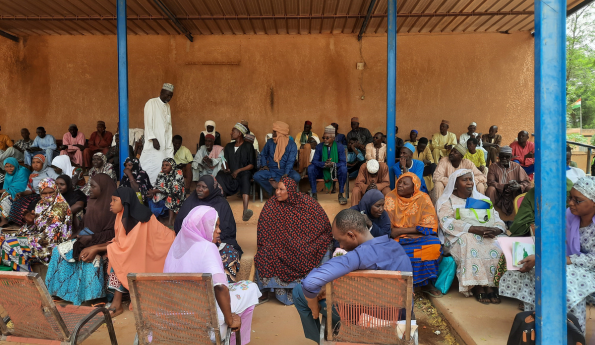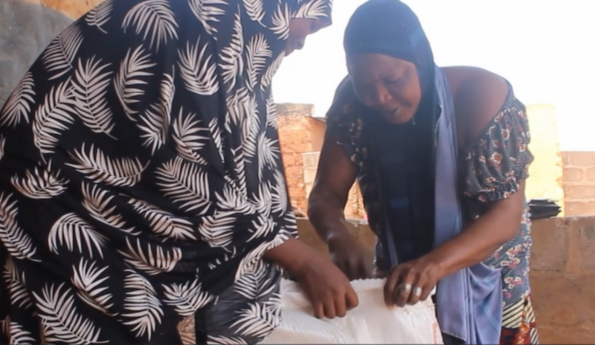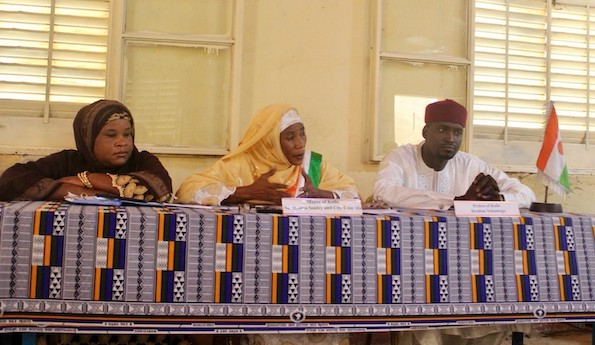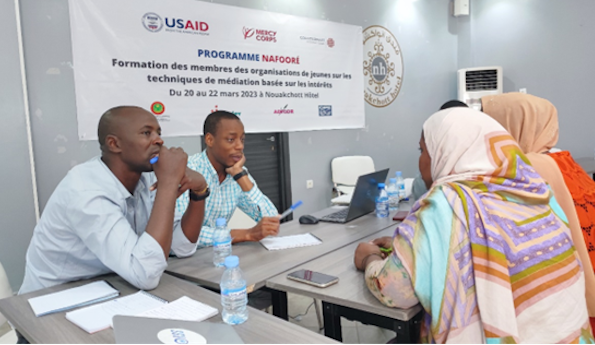The people of Kiéché, a rural village in the Dosso Region in southwest Niger, face many challenges resulting from deteriorating road infrastructure. Kiéché is more than 150 miles outside of Niamey, the nation’s capital. Every year, the rainy season wreaks havoc on the road—particularly the stretch that connects the villages of Tombon Gataou and Batchaka. The roadway borders Nigeria and is used by traders for importing and exporting goods. The rain cut a large ravine that often renders the road impassable and the journey perilous, blocking access to the market and causing accidents that have injured and killed people in addition to damaging cars, goods, and equipment.
With funding from USAID, Counterpart has implemented the Resilient Governance in Niger project, Jagoranci, since 2021 to strengthen the social contract between the government and the people and develop the capacity of civil society to identify and address local priorities.
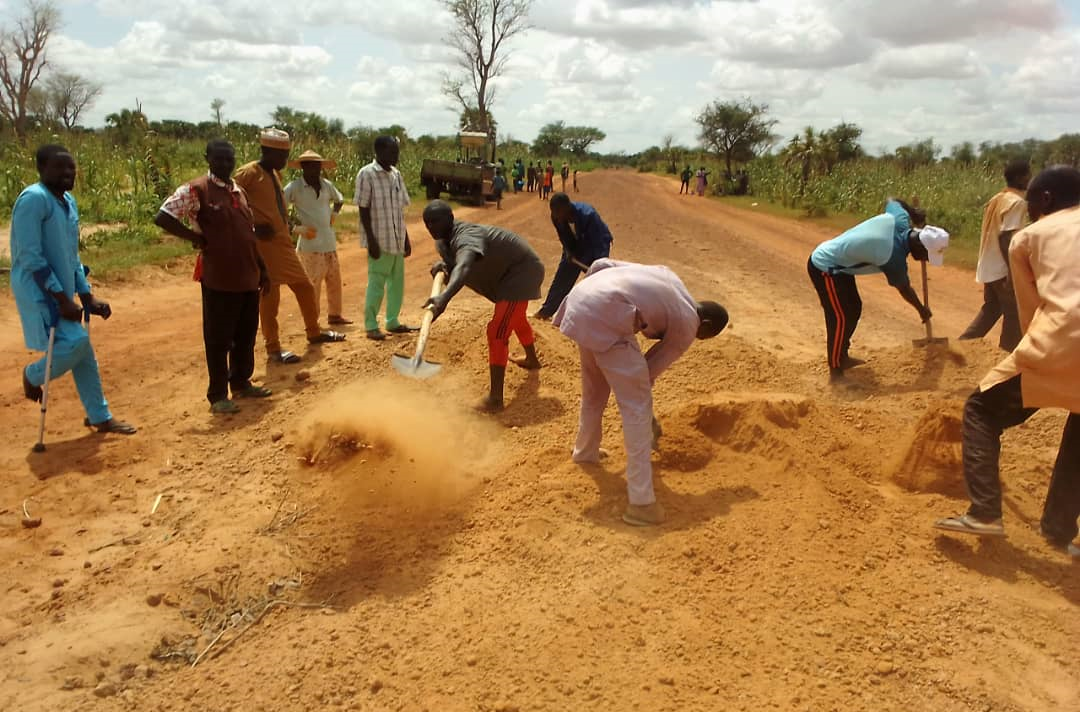
The citizen monitoring committee in Kiéché, supported by Counterpart’s Resilient Governance in Niger project, decided to rehabilitate a dangerous road to improve the safety of its citizens. The work was carried out by a group of volunteers in the community.
The project supported the establishment of citizen monitoring committees, including one in Kiéché focused specifically on concerns surrounding the Tombon Gataou road. In September 2023, the committee made the decision to prioritize fixing the road with the support of volunteers from the local community, pooling their own resources to purchase necessary supplies.
“We rented a vehicle and equipment and provided laterite [a soil rich in iron and aluminum used in road repair] and refreshments. This was possible thanks to the weekly contribution that we set up within the [committee] to carry out activities with our own funds and manage the affairs of the municipality,” explained Abdoulaye Adamou, a member of the Kiéché committee.
Adamou Garba, chief of Tombon Gataou, acknowledged, “Thanks to this action, we have become aware of the importance of volunteering within a municipality. For the village of Tombon Gataou, it is a relief after more than two years of waiting and suffering. Now, our travel will be faster and safer thanks to the rehabilitation of this road.”
In Resilient Governance in Niger, Counterpart relies on peer learning and collaboration to champion citizen priorities, using citizen monitoring committees and other tools to ensure local voices are heard and civil society can advocate for the services most critical for their own community.



